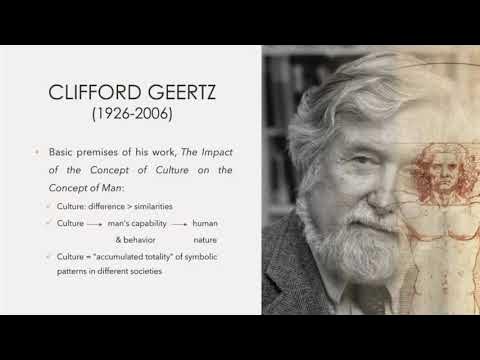Visual Sociology: Macro and Micro Perspectives
Summary
TLDRThis script explores two main approaches to sociology: macro and micro sociology. Macro sociology examines society from a broad perspective, focusing on large social structures and how they shape individual behavior. It looks at the wider forces, like institutions, that influence people's lives. In contrast, micro sociology zooms in on small-scale interactions, studying how individuals shape society through their relationships and daily activities. Both perspectives provide valuable insights, with macro focusing on societal constraints and micro emphasizing individual actions and meanings within their social context.
Takeaways
- 🔍 Sociologists study how and why people behave in certain ways, but they use different approaches to understand this behavior.
- 🌍 Macro sociology focuses on the 'big picture' of society, analyzing large-scale structures and relationships like family, education, and government.
- 🏙️ Macro sociology is like viewing society from a high vantage point, helping us see broad social structures and how they connect.
- ⚖️ Large social forces, like institutions and societal systems, constrain individual behavior in ways similar to physical forces like gravity.
- 🔗 Macro sociologists believe individual behavior is largely shaped by the connections and constraints of social institutions.
- 👥 Micro sociology, on the other hand, focuses on small-scale interactions between individuals within social groups.
- 👀 Micro sociologists study society up-close, observing personal interactions and the meanings people give to everyday actions.
- 💬 This approach emphasizes that society is built through daily interactions, relationships, and shared meanings between individuals.
- 📖 Micro sociologists often conduct detailed, long-term research on small groups to understand how individuals create and maintain social meanings.
- 🧩 For micro sociologists, shared meanings in social interactions are not self-evident; they are taught, learned, and context-dependent.
Q & A
What is the main focus of macro sociology?
-Macro sociology focuses on studying society from a broad perspective, looking at large groups and institutions to understand human relationships and behavior on a large scale.
How is macro sociology compared to a view from the sky?
-Macro sociology is likened to viewing society from a high vantage point, where one can observe the overall structure, including infrastructure and how various components like cities and towns are connected.
What constraints on human behavior does macro sociology emphasize?
-Macro sociology emphasizes that large social forces and institutions, like family, education, and government, shape and constrain individual behavior, much like gravity limits physical movement.
How does being born into a particular type of family impact an individual's life according to macro sociology?
-According to macro sociology, being born into a certain type of family can significantly affect life opportunities, such as the quality of education one receives, the type of job they get, and their overall socioeconomic status.
What is the primary difference between macro sociology and micro sociology?
-The primary difference is that macro sociology looks at large-scale social forces and institutions, while micro sociology focuses on small-scale social interactions and the behaviors of individuals within small groups.
How does micro sociology approach the study of social behavior?
-Micro sociology studies social behavior by closely observing small-scale interactions, focusing on how individuals communicate, form relationships, and build societies through everyday interactions.
What is the significance of 'shared meanings' in micro sociology?
-Shared meanings are crucial in micro sociology because they allow individuals to interpret behaviors and actions consistently within a social context. Without shared meanings, coordinated social behavior would be difficult.
How do micro sociologists view the relationship between individuals and society?
-Micro sociologists view individuals as active creators of society through their daily interactions. They emphasize that society is constructed through the meanings and relationships individuals develop with one another.
Why do micro sociologists believe it is important to study small groups in depth?
-Micro sociologists believe in-depth study of small groups is important because it allows them to understand the nuanced meanings, motivations, and social dynamics that shape individual behavior and social relationships.
How does the meaning of behavior change according to micro sociologists?
-According to micro sociologists, the meaning of any behavior is context-dependent. The same action can have different meanings in different social situations, as illustrated by the example of fighting in a boxing ring versus on the street.
Outlines

هذا القسم متوفر فقط للمشتركين. يرجى الترقية للوصول إلى هذه الميزة.
قم بالترقية الآنMindmap

هذا القسم متوفر فقط للمشتركين. يرجى الترقية للوصول إلى هذه الميزة.
قم بالترقية الآنKeywords

هذا القسم متوفر فقط للمشتركين. يرجى الترقية للوصول إلى هذه الميزة.
قم بالترقية الآنHighlights

هذا القسم متوفر فقط للمشتركين. يرجى الترقية للوصول إلى هذه الميزة.
قم بالترقية الآنTranscripts

هذا القسم متوفر فقط للمشتركين. يرجى الترقية للوصول إلى هذه الميزة.
قم بالترقية الآنتصفح المزيد من مقاطع الفيديو ذات الصلة

Sociological Perspectives | Introduction to A-Level Sociology

Theory and Methods | O'level Sociology Crash Course #sociologylecture

UTS Sociology & Anthropology

Three Major Perspectives in Sociology Symbolic Interactionist Functionalist and Conflict Perspective

CIRI-CIRI SOSIOLOGI SEBAGAI ILMU PENGETAHUAN DAN METODE ILMIAH - Materi Sosiologi Kelas 10 SMA

What psychology can do for understanding tourism | WURcast
5.0 / 5 (0 votes)
